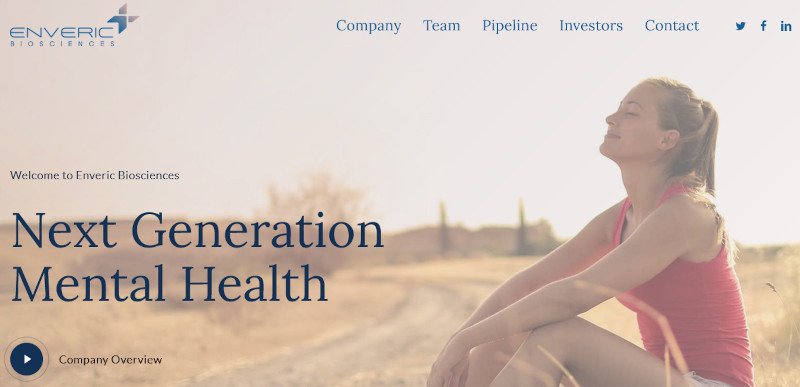The AI Revolution in Psychedelic Therapy & the Cannabis Industry

As we move forward into 2024, the fusion of machine learning and artificial intelligence (AI) with the worlds of psychedelic therapy and cannabis is no longer just a futuristic dream but a tangible reality.
This integration is revolutionizing these sectors, offering unprecedented advancements from drug development to customer service and operational compliance. In this blog post, we will delve into the multifaceted role of AI in these transformative industries.
Contents
Psychedelic Drug Therapy and AI
AI in the Cannabis Industry
Optimizing Sales and Marketing with AI
Navigating Legal and Ethical Frontiers
Future Trends in AI Integration
Psychedelic Drug Therapy and AI

Revolutionizing Drug Development
Enveric Biosciences and similar companies are at the forefront of harnessing AI for breakthroughs in psychedelic therapy. This novel approach is transforming mental health and oncology therapy development by leveraging psychedelic-derived molecules for the mind and synthetic cannabinoids for the body.
This integration of AI in the drug discovery process is not just accelerating research but also increasing the precision of these treatments, ensuring they target specific pathways in the brain associated with various mental health disorders.
It also enables the identification of patient subgroups who are most likely to benefit from these therapies, personalizing treatment in unprecedented ways.
And, these advances arent just limited to psychedelic research. Using a type of artificial intelligence known as deep learning, MIT researchers have discovered a class of compounds that can kill a drug-resistant bacterium that causes more than 10,000 deaths in the United States every year.
By analyzing complex biochemical interactions, AI enables the discovery of new therapeutic applications across many areas of medicine, health, and wellness.
Enhancing Therapy Efficacy with AI & Telemedicine
The combination of AI with telemedicine is breaking new ground in psychedelic therapy. With AI, therapists can monitor patient responses in real-time, adjusting treatments as necessary to maximize effectiveness. This approach is particularly transformative for patients in remote or underserved areas, where access to specialized care is limited.
AI’s deep learning algorithms can predict patient responses to therapies, allowing for early intervention in cases where treatment may not be as effective. Furthermore, AI is enhancing the scalability of psychedelic therapies, making them more accessible to a broader range of patients globally.
Gleaning Insights from Data Analytics
AI’s data analysis capabilities are redefining our understanding of psychedelic therapies. By aggregating and analyzing large datasets, AI is uncovering new insights about how various psychedelic compounds interact with the human brain. This is leading to more effective dosing strategies and reducing potential side effects.
Predictive modeling is also crucial in identifying potential treatment pathways that would go unnoticed in traditional research methods. This data-centric approach is rapidly advancing our understanding of the therapeutic potential of psychedelics, paving the way for more targeted and effective treatments.
AI in the Cannabis Industry

Streamlining Inventory Management
AI’s predictive capabilities are reshaping inventory management. By forecasting market trends and customer demands, AI enables businesses to optimize their inventory levels, reducing waste and improving profitability. For cultivators, AI’s predictive analysis can forecast crop yields, helping them to better plan their cultivation cycles.
AI algorithms can also detect patterns in customer buying behavior, allowing businesses to stock products more aligned with consumer preferences. This enhances efficiency and supports sustainable business practices by reducing excess production.
Elevating Customer Service
In the cannabis industry, AI is redefining customer service. AI-powered chatbots and virtual assistants provide personalized recommendations, enhancing overall customer experience. These tools can also handle routine inquiries, freeing staff to focus on more complex customer needs.
In an industry where customer education is key, AI tools are becoming instrumental in disseminating accurate information about products, usage, and safety. In addition, AI is enabling a more seamless and engaging online shopping experience, which is crucial in an increasingly digital marketplace.
Adapting Production to Demand
AI is adept at monitoring and adapting to changing market trends in the cannabis industry. By analyzing data from various sources, AI can predict shifts in consumer preferences and emerging market trends. This allows businesses to quickly adapt their production strategies, ensuring they are always aligned with market demand.
AI-driven insights are also instrumental in new product development, helping businesses stay ahead of the competition. By enabling more agile and responsive production models, AI is ensuring that the cannabis industry remains dynamic and customer-centric.
Optimizing Sales and Marketing with AI

Predictive Analytics for Effective Marketing
AI-driven predictive analytics are revolutionizing sales and marketing strategies in the cannabis industry. By analyzing customer data, AI can identify key market segments and tailor marketing messages to resonate with different audiences. This leads to more effective and targeted campaigns, increasing customer engagement and loyalty.
AI’s ability to analyze vast amounts of data also helps businesses understand the effectiveness of their marketing efforts, allowing for continuous optimization of strategies. AI-powered tools are also streamlining lead generation and qualification processes, making sales efforts more efficient and effective.
AI in Content Creation & Compliance
In the challenging regulatory landscape of cannabis advertising, AI is proving invaluable. AI-driven content creation tools help ensure compliance with advertising regulations, automatically flagging content that might violate rules. This is critical in avoiding costly penalties and maintaining a positive brand image.
AI is also being used to create engaging and informative content that resonates with audiences while adhering to legal guidelines. In an industry where misinformation can be prevalent, AI’s role in creating accurate and compliant content is more important than ever.
Navigating Legal and Ethical Frontiers: AI in Mind-Altering Therapies

As the integration of AI into psychedelic therapy and the cannabis industry develops, we must also navigate the intricate ethical landscape that accompanies these advancements. The promise of AI to revolutionize these sectors comes with a set of moral responsibilities and ethical considerations that cannot be overlooked.
Patient Consent in an AI-Driven Treatment Environment
The concept of informed consent is central to ethical discourse. With AI’s capability to predict and personalize treatments, how do we ensure patients fully understand and agree to the complex processes determining their care?
It’s imperative to develop clear guidelines that make the AI’s role in treatment comprehensible to non-specialists and safeguard the patient’s autonomy and understanding of the treatment they are receiving.
Data Privacy Concerns
The use of AI in therapy involves handling sensitive personal health information. Ensuring the confidentiality and security of this data is paramount.
As vast amounts of personal data are collected and analyzed to feed into machine learning algorithms, strict adherence to data protection laws and the ethical use of this information must be maintained. Patients need assurance that their personal health data will be used responsibly and securely.
Moral Responsibilities in Mind-Altering Therapies
Employing AI in developing and delivering mind-altering therapies carries significant responsibilities. The creators and users of these systems must consider the long-term impacts of their work.
This includes avoiding biases in treatment recommendations, ensuring equitable access to these advanced therapies, and continuously monitoring and mitigating any unintended consequences of AI interventions.
Regulatory Response and Future Guidelines
As the use of AI in psychedelic therapy and cannabis industries is relatively new, regulatory bodies are still catching up. There is a growing need for specific guidelines that address the unique challenges of AI in this context.
These guidelines should ensure the ethical deployment of AI, protect patient welfare, and promote innovation within a responsible framework.
Intellectual Property Considerations
In the realm of AI and cannabis, intellectual property considerations are pivotal. With AI’s increasing involvement in creative processes, ensuring that the resulting work is protectable under copyright or patent laws becomes essential.
Businesses must strike a balance, using AI to aid human creativity rather than replace it. This is particularly important in content creation, where AI can be used to generate initial drafts or ideas that are then refined by human input.
Future Trends in AI Integration

Anticipating Continued Growth and Expansion
The role of AI in both psychedelic therapy and the cannabis industry is anticipated to broaden, encompassing areas like drug discovery, personalized medicine, and operational efficiency.
As AI technology becomes more sophisticated, its applications will likely extend to deeper data analysis for patient treatment, advanced predictive modeling for market trends, and more nuanced customer engagement strategies.
The future may also see AI playing a significant role in genetic research within the cannabis industry, helping to develop new strains with specific properties.
Legal Regulations Shaping AI Applications
The ever-evolving legal landscape will continue influencing how AI is deployed in these industries. Businesses will need to be agile and adaptive, keeping up to date with changes in regulations to ensure their AI applications remain compliant.
This will require a collaborative approach, with AI developers, legal experts, and industry stakeholders working together to navigate the regulatory frameworks.
As AI becomes more integral to these industries, there may be a push for more specific regulations governing its use, particularly in areas related to privacy, data security, and ethical considerations.
Unlocking the Future of Psychedelic Therapy & Cannabis Industries
The ongoing integration of AI in the psychedelic therapy and cannabis sectors promises a transformative impact, reshaping these industries from research labs to marketplaces.
As we look towards 2024 and beyond, embracing AI’s potential in these fields will be crucial for innovation, efficiency, and compliance, marking a new era in therapeutic and commercial advancements.
Are you fascinated by the evolving role of AI in the psychedelic therapy and cannabis industries? Share this blog post to spread awareness and ignite discussions about this fascinating intersection of technology and therapy!
. . .
Informational resources for learning more about psychedelic therapy and legalities:
Enveric Biosciences Announces Artificial Intelligence Platform, PsyAI™, Has Identified Viable Drug Candidates from its ‘Psybrary’ of Psychedelic Molecular Compounds
How AI could unlock the medical potential of psychedelics
Oregon Psilocybin Services Directory: A directory currently in development for connections to a licensed facilitator or service center: OR Psilocybin Services
The Oregon Center for Psychedelic Somatic Therapy: A resource center providing information and support regarding psychedelic therapy in Oregon: The Oregon Center for Psychedelic Somatic Therapy
OHSU’s Brain Awareness Lecture: Psychedelic Therapy: The Science and Safety of Psilocybin: An educational resource from the Oregon Health & Science University focusing on the scientific and safety aspects of psychedelic therapy: OHSU Brain Awareness Lecture
Rogue Psychedelic: Provides a collection of resources related to psilocybin and psychedelic therapies: Rogue Psychedelic Resources
Third Wave Oregon’s Psychedelic Path: What Coaches and Consumers Need to Know: An informative article on the current state and future of psychedelic use and legality in Oregon: Third Wave Oregon’s Psychedelic Path


